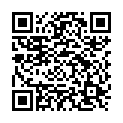|
|
|
| Module code: EE1601 |
|
|
2V+1U+1P (4 hours per week) |
|
5 |
| Semester: 6 |
| Mandatory course: yes |
Language of instruction:
German |
Assessment:
Written exam, practical exam with composition (3 lab experiments, ungraded)
[updated 08.01.2020]
|
EE1601 (P212-0046, P212-0047) Energy system technology / Renewable energies, Bachelor, ASPO 01.10.2022
, semester 6, mandatory course
E2602 (P211-0103, P211-0104) Electrical Engineering and Information Technology, Bachelor, ASPO 01.10.2018
, semester 6, mandatory course, technical
|
60 class hours (= 45 clock hours) over a 15-week period.
The total student study time is 150 hours (equivalent to 5 ECTS credits).
There are therefore 105 hours available for class preparation and follow-up work and exam preparation.
|
Recommended prerequisites (modules):
None.
|
Recommended as prerequisite for:
|
Module coordinator:
Prof. Dr.-Ing. Stefan Winternheimer |
Lecturer: Prof. Dr.-Ing. Stefan Winternheimer
[updated 16.09.2018]
|
Learning outcomes:
After successfully completing this course, students will have detailed knowledge about the operating behavior of DC machines and the control of DC drives. They will be able to convert a control problem into a block diagram, develop a functional control concept and design the required controllers independently. Students will have an overview of common inverter circuits and the necessary modulation methods. They will be able to develop the block diagram of a single-phase inverter.
[updated 08.01.2020]
|
Module content:
1. DC drives 1.1 The DC machine as a controlled system 1.2 Fundamentals of control engineering 1.3 Speed-controlled DC machine 1.4 DC machine with variable excitation flux 2 Power inverter 2.1 The single-phase inverter 2.2 The three-phase inverter 2.3 The single-phase inverter as a controlled system 3 Lab 3.1 Speed-controlled DC machine 3.2 Asynchronous machine with frequency converter 3.3 Grid-connected PV system
[updated 08.01.2020]
|
Teaching methods/Media:
Transparencies, blackboard, lecture notes and electronic handouts
[updated 08.01.2020]
|
Recommended or required reading:
Leonhard, Werner: Control of Electrical Drives, Springer, Berlin, Heidelberg, 1990, Corr. 2. print Mohan, Ned; Undeland, Tore M.; Robbins, William P.: Power Electronics, Wiley, (latest edition) Riefenstahl, Ulrich: Elektrische Antriebstechnik, B.G. Teubner, (latest edition) Schröder, Dierk: Elektrische Antriebe - Regelung von Antriebssystemen, Springer, Berlin, Heidelberg, (latest edition)
[updated 08.01.2020]
|


